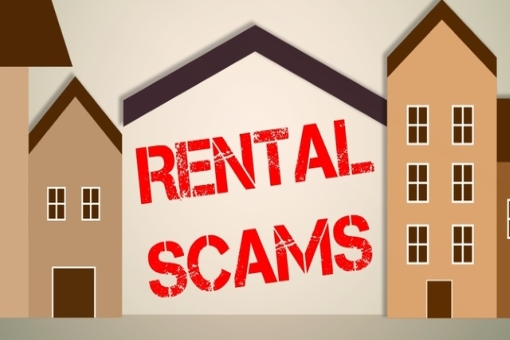
How to Avoid Rental Scams
Internet and other third party rental resources are great for searching for roommates, apartments, and subletting. However, this is no guarantee they are free from scams. Be cautious when completing transactions with prospective roommates, tenants, landlords, and rental agents.
What can you do to avoid scams? Know common scam techniques and how to identify a scam to avoid becoming a victim. We share best practices below so you can keep your apartment search safe!
During Your Search
You should do the following:
- Use the reliable listing website to find reputable listings from licensed realtors and local property owners. Not only will you save time, but you will be viewing listings from registered users and reputable companies near campus.
- Know average rental costs. Unusually low rent is a potential sign of a scam. View Waltham rental cost by neighborhood.
- Confirm the apartment exists! See an apartment in-person or send someone to view it for you. You could also schedule a live walk-through on a video call. Scam listings will avoid showing you the apartment.
- Inquire about fees, due dates, and the application process. Scammers often don’t have an application process and focus on getting you to send money right away. If there ism’t an application process, it is likely a scam.
- Research your realtor and the property. You can look up realtors by their name and license number here. Research the property owner’s name and find any past issues with the building. If the rental unit doesn't’t exist or if the name of the owner doesn't’t match your landlord, you may need to take additional steps to verify the listing.
- Confirm the realtor office location, phone number, and email and that they are in working order. These should also match the contact info that you have been using to get in touch with the realtor/broker.
You should NOT do the following:
- Never wire money as a deposit or payment for the first and last month’s rent. Wiring money is the same as giving cash; you can’t get a refund, even if you find out the offer was a fraud. Avoid using Western Union or MoneyGram.
- Don’t give in to high-pressure sales tactics. You should be given time to view and apartment, review a lease, and ask questions.
- Never make payments in the form of cash. Use a credit card or bank check that can be tracked. Many credit cards offer fraud protection.
- Don’t rent a property that you are unable to see. Any realtor or owner will allow you to see an apartment.
- Don’t share personal information (social security numbers, visa documents, etc.) until you verify the listing exists and you can verify the identity of the person to whom you are speaking.
Reporting Scams
- Get guidance from Brandeis. Contact The Office of Graduate Affairs (781-736-3546) to let us know you have experienced a rental scam.
- Report the scam to your state consumer protection office. If you lost money or other possessions in a scam, report it to your local police too.
- Report the incident to the Federal Trade Commission (FTC). FTC is the main agency that collects scam reports. Report the scam to the FTC online, or by phone at 1-877-382-4357 (9:00 AM – 8:00 PM, ET). The FTC accepts complaints about most scams.
- Report fake websites, emails, aware, and other internet scams to the Internet Crime Complaint Center (IC3). Some online scams start outside the United States. If you have been affected by an international scam, report it through econsumer.gov. Your report helps international consumer protection offices spot trends and prevent scams.